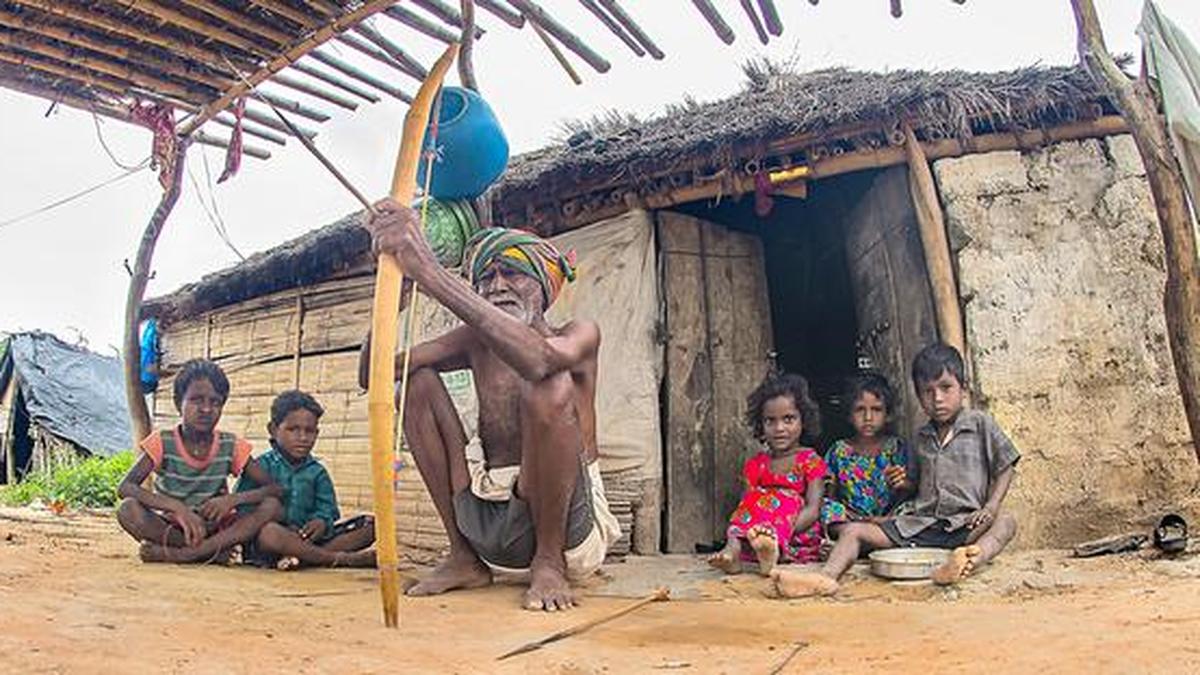
A tribe out of time: how Chenchus have been caught between ancestral past and uncertain future in Andhra Pradesh Premium
The Hindu
Chenchu tribe struggles with poverty, lack of work, and modernization in Andhra Pradesh, highlighting the impact of MGNREGS.
Sitting under a tree on a cot woven from leaves and logs, Dasari Kotaiah sighs wearily when asked about what he’s going to have for lunch.
“The usual,” he replies. A thin meal of rice and pachhadi — a simple chutney made from chilli, tamarind, and onion — has remained the family’s staple diet for years now. “This is our food for 25 days in a month. We cannot afford anything beyond that. Where is the money?” Kotaiah asks, shaking his head at the thought of buying fruits or vegetables from the market. His wry laugh speaks of a life where even the simplest comforts are out of reach.
Kotaiah lives in a hamlet called Panukumadugu in Dornala mandal of Prakasam district. The hamlet is home to the Chenchus, said to be the oldest aboriginal, Telugu-speaking tribe and the most vulnerable of the 12 Particularly Vulnerable Tribal Groups (PVTGs) in undivided Andhra Pradesh.
Around 25 kilometres away is Dornala, a small town at the edge of the Nallamala forest in Prakasam district. A pitstop for Srisailam-bound devotees, Dornala has had a growth spurt in the past two decades with hotels and eateries coming up. Dornala is the nearest go-to place for the Chenchu villages, including Panukamadugu. The contrast between the town and the hamlet of Panukumadugu is stark, more than what meets the eye.
Most of the dwellings in Panukumadugu are single-room thatched huts, simple and sparse, with conical or square roofs and rounded bases. Of the few pucca houses built under the Indiramma Illu housing scheme, many are in disrepair. The only sturdy structure in this hamlet is the Anganwadi, where a single female teacher educates around 10 children.
While Dornala thrives with an expanding menu of cuisines in its restaurants, life for the Chenchus seems to be moving in the opposite direction, with development passing them by.
“Ever since we stopped working under the Mahatma Gandhi National Rural Employment Guarantee Act (MGNREGA) in 2022, life has become much harder,” Kotaiah explains. “The wages I earn as an agricultural labourer aren’t enough to support a family of 22,” says Kotaiah, who doesn’t remember his exact age, though his Aadhaar card lists him as 59. Both he and his wife take whatever work they can find, earning ₹250 each per day.

Autopsy report of Manipur family says victims were shot multiple times before bodies dumped in river
The autopsy report of three of the six members of a Meitei family who were allegedly abducted by armed militants during an encounter with security forces in Jiribam district of Manipur on November 11, 2024, reveals that they were shot multiple times before their bodies were dumped in a river.










